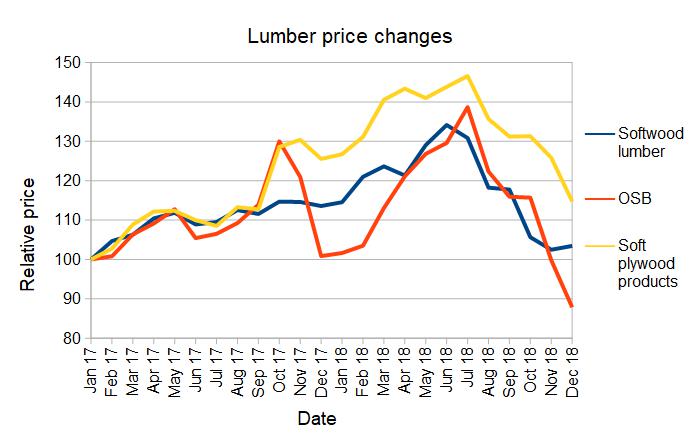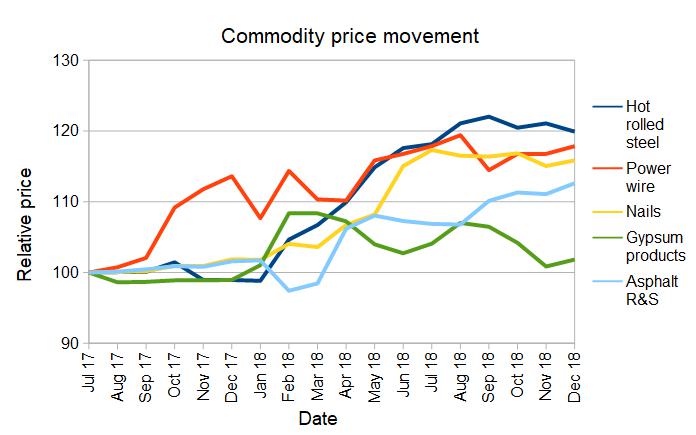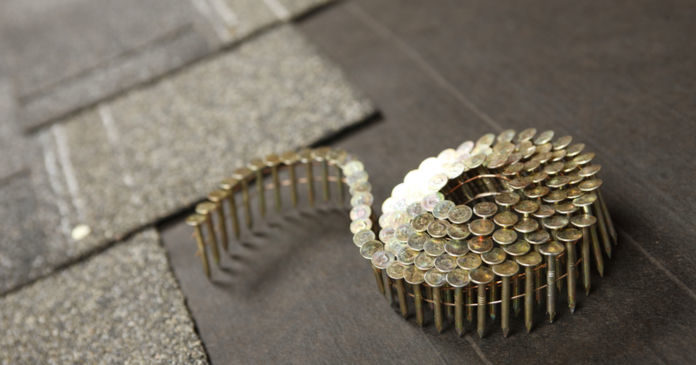The Bureau of Labor Statistics (BLS) released its producer price index report for December. It showed that overall prices for processed goods for intermediate demand fell by 0.9 percent from November. Prices for these goods were up 3.0 percent in 2018, lower than the 5.0 percent increase seen in 2017. This compares with a 1.9 percent rise in the all-items consumer price index (CPI) for 2018.
The BLS price index of construction materials and components was unchanged from November, 2018 but was 4.9 percent higher than a year earlier.
Multihousing Pro (PRO) compiled the BLS reported price changes for our standard list of construction materials and commodities. These are commodities whose prices directly impact the cost of constructing an apartment building. The two right hand columns of the table provide the percent change in the price of the commodity from a year earlier (12 Mo PC Change) and the percent change in price from November, 2018 (1 Mo PC Change).
| Commodity | 12 Mo PC Change | 1 Mo PC Change |
| Softwood lumber | -8.9 | 1.0 |
| Hardwood lumber | 2.5 | 2.4 |
| General millworks | 2.3 | -0.1 |
| Soft plywood products | -8.6 | -8.8 |
| Waferboard and oriented strand-board (OSB) | -12.9 | -12.0 |
| Hot rolled steel bars, plates and structural shapes | 21.3 | -0.9 |
| Copper wire and cable | -0.4 | -1.1 |
| Power wire and cable | 3.7 | 0.9 |
| Builder’s hardware | 3.5 | 0.5 |
| Plumbing fixtures and fittings | 5.2 | -0.2 |
| Enameled iron and metal sanitary ware | 1.6 | 0.0 |
| Furnaces and heaters | 5.3 | 0.0 |
| Sheet metal AC ducts and stove pipe | 0.7 | 0.0 |
| Electrical Lighting fixtures | 7.5 | -0.2 |
| Nails | 13.7 | 0.7 |
| Major appliances | 4.0 | 1.0 |
| Flat glass | 2.7 | -0.1 |
| Ready mix concrete | 3.1 | 0.5 |
| Asphalt roofing and siding | 10.9 | 1.8 |
| Gypsum products | 2.9 | 1.0 |
| Mineral wool insulation | 5.8 | -0.7 |
The big story in construction materials prices over the last two years has been the spike in the price of lumber. However, since peaking in the June-July time frame, the prices of softwood product have weakened significantly. In particular, the price of oriented strandboard (OSB) has declined dramatically from its peak. This is illustrated in the first chart, below, which shows the prices of softwood lumber, OSB and soft plywood relative to their levels in January, 2017. While the price of soft plywood products is still up 14 percent over that two year period, price changes in the other two commodities is at or below the general rate of inflation in the economy. This is good news for builders of low-rise buildings.

On the other hand, the prices of metal products and asphalt roofing and siding, have been rising recently. This is bad news for builders of high-rise buildings. These price movements are illustrated in the next chart which shows the relative price changes since July, 2017 for a selected group of these materials. The chart shows that the surge in prices of these materials in the summer of 2018 has moderated for most of them, although at levels well above where they were 18 months ago. However, asphalt roofing and siding continues to see significant price increases.

The full BLS report can be found here.
















